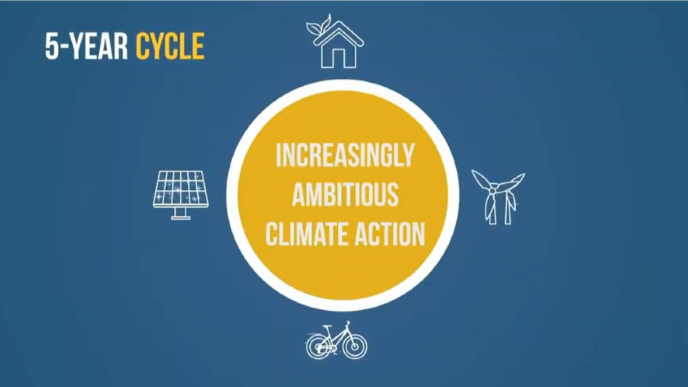
The Role of Biofuels in Achieving the Targets of the Paris Agreement
Introduction
The global initiative known as the Paris Agreement aims to address climate change and its impact on the environment. This article provides an overview of the agreement and its significance in tackling climate change. Additionally, it explores the role of biofuels within the context of the Paris Agreement and emphasizes the importance of discussing their intersection.
Historical Background
Adopted in 2015, the Paris Agreement is a landmark accord that seeks to limit global warming to well below 2
degrees Celsius above pre-industrial levels. It builds upon previous efforts to combat climate change, including the Kyoto Protocol. The agreement’s key goals and objectives include enhancing countries’ ability to adapt to the impacts of climate change, fostering sustainable development, and mobilizing financial resources to support climate-related initiatives. Concurrently, the development of biofuels has been a crucial component of climate change mitigation efforts dating back several decades.
Key Concepts and Definitions
The Paris Agreement encompasses several main components, including Nationally Determined Contributions (NDCs) and the global temperature goal. NDCs represent individual countries’ commitments to reducing greenhouse gas emissions and adapting to the impacts of climate change. The global temperature goal aims to limit global warming to well below 2 degrees Celsius, preferably to 1.5 degrees Celsius, compared to pre-industrial levels. Biofuels, on the other hand, are defined as fuels derived from renewable biological sources such as plants and algae. Various types of biofuels exist, including first-generation and second-generation biofuels, which differ in terms of feedstock and production methods. Biofuels must also meet specific sustainability criteria, including greenhouse gas emissions reduction and land use considerations.
Main Discussion Points
The Role of Biofuels in Achieving the Paris Agreement Targets
One of the key benefits of biofuels is their potential to reduce greenhouse gas emissions in the transportation sector. When used as a substitute for fossil fuels, biofuels can significantly contribute to emissions reductions. Additionally, they can enhance energy security and diversify the energy mix, reducing dependence on finite fossil fuel resources. This not only helps countries meet their NDCs but also promotes sustainable development.

Challenges and Limitations of Biofuels in the Context of the Paris Agreement
While biofuels offer promising advantages, there are several challenges and limitations associated with their production and use. Issues such as land use change and competition with food production need to be addressed. The expansion of biofuel feedstock production can lead to deforestation and encroachment on natural habitats. Furthermore, sustainability concerns related to biofuel production, including water use and biodiversity loss, require careful management to ensure that biofuels contribute to climate change mitigation without causing additional environmental harm.
Policies and Strategies for Promoting Biofuels under the Paris Agreement
To promote the adoption of biofuels, governments can implement renewable fuel standards and provide incentives for biofuel production and use. Setting targets and establishing a supportive regulatory framework can encourage the development and deployment of biofuels. International cooperation and technology transfer are also important for biofuel development, as countries can learn from each other’s experiences and collaborate on research and development efforts.
Case Studies or Examples
Brazil, the United States, and Sweden serve as examples of countries that have successfully implemented biofuel initiatives. Brazil, particularly, has pioneered biofuel production, with ethanol derived from sugarcane being a notable example. The United States has made significant progress in producing biofuels from corn and soybeans. Sweden is known for its advanced biofuel production, especially from forest biomass. However, challenges are also faced by countries like Indonesia and Malaysia, where the production of palm oil biofuels has raised concerns about deforestation and its impact on biodiversity.
Current Trends or Developments
Recent research findings shed light on the environmental and economic impacts of biofuels. Studies have shown that biofuels can reduce greenhouse gas emissions compared to conventional fossil fuels, although the extent of emissions reduction depends on various factors, including feedstock, production methods, and land use practices. Moreover, advanced biofuels, produced from non-food feedstocks or agricultural residues, have gained attention for their potential to further reduce emissions. Another emerging trend is the growing interest in sustainable aviation fuels as a means to decarbonize the aviation sector.

Challenges or Controversies
Debates surrounding the sustainability of certain biofuels, such as palm oil, have raised concerns about deforestation and biodiversity loss. The expansion of palm oil plantations for biofuel production has resulted in habitat destruction and contributed to greenhouse gas emissions. Additionally, concerns exist about potential conflicts between biofuel production and food security, as increasing demand for biofuels may compete with food production, potentially driving up food prices.
Future Outlook
The future growth of biofuels is expected to be influenced by various factors, including market trends and emerging technologies. Electric vehicles gaining popularity may pose a challenge to biofuel adoption. However, biofuels still offer advantages such as energy security and carbon neutrality, making them an attractive option for reducing emissions in the transportation sector. International collaboration and innovation will play a crucial role in driving sustainable biofuel development as countries work together to overcome challenges and promote the widespread adoption of biofuels.
Conclusion
Biofuels have a significant role to play in achieving the targets of the Paris Agreement. They can contribute to greenhouse gas emissions reduction, enhance energy security, and promote sustainable development. However, challenges and limitations, such as land use change and sustainability concerns, need to be addressed. Through the implementation of supportive policies, international cooperation, and technological advancements, biofuels can continue to evolve as a viable and sustainable alternative to fossil fuels.




